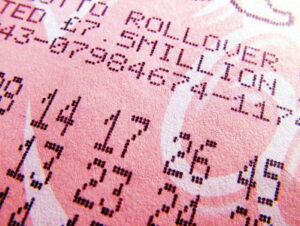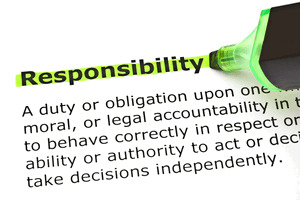 In contemporary society, gambling has become inherently intertwined with capitalism, with the proliferation of commercial casinos, online betting platforms and high-stakes gambling plain for all to see. However, it is essential to distinguish between the act of gambling itself and the potential harms associated with it.
In contemporary society, gambling has become inherently intertwined with capitalism, with the proliferation of commercial casinos, online betting platforms and high-stakes gambling plain for all to see. However, it is essential to distinguish between the act of gambling itself and the potential harms associated with it.
There is a question as to whether gambling addiction is a product of capitalism, with societal factors and economic inequality contributing to the development of harmful gambling behaviours. That is the nature of modern gambling and its relationship with capitalism.
For bettors, there will always be the desire to win money. That is at the heart of gambling for a lot of people. It isn’t there for everyone, however. There are plenty of people who can place bets of small amounts not because they’re trying to win vast sums of money but because they enjoy the process of placing a bet.
The fact that such people are the exception that proves the rule tends to suggest that the move towards capitalism from the gambling industry as a whole is all but complete. Whether it’s hitting the jackpot on a slot game or winning the EuroMillions, coming across large amounts money is now the dream for many.
The Shift Towards Commercialisation
 In recent decades, there has been a notable shift towards the commercialisation of gambling. Traditional street games that were once played for fun and social interaction have been overshadowed by the rise of commercial casinos and online gambling platforms. This transformation has been driven by the desire to increase profits, with the gambling industry seeking to maximise its revenue and attract a larger customer base. Commercial casinos, often adorned with glitz and glamour, have become prominent fixtures in many cities around the world.
In recent decades, there has been a notable shift towards the commercialisation of gambling. Traditional street games that were once played for fun and social interaction have been overshadowed by the rise of commercial casinos and online gambling platforms. This transformation has been driven by the desire to increase profits, with the gambling industry seeking to maximise its revenue and attract a larger customer base. Commercial casinos, often adorned with glitz and glamour, have become prominent fixtures in many cities around the world.
These establishments, fuelled by the capitalist ethos, prioritise generating profits above all else. They employ marketing strategies that target vulnerable individuals, including those who may be struggling financially or seeking an escape from their circumstances. By leveraging sophisticated advertising techniques, casinos create a sense of excitement and possibility, enticing individuals to participate in gambling activities. Similarly, online gambling platforms have experienced tremendous growth, facilitated by advances in technology and the internet.
These platforms provide convenience and accessibility, enabling individuals to gamble from the comfort of their homes. However, the online gambling industry has also faced criticism for its aggressive marketing tactics, which can exploit vulnerable populations and encourage excessive gambling. Capitalist societies often place a high value on wealth accumulation and social status. The allure of financial success permeates cultural narratives and influences individual aspirations. Gambling, with its potential for quick and substantial monetary gains, can be seen as a means to achieve this dream.
The hope of striking it rich and attaining a higher socioeconomic position drives many individuals to participate in gambling activities. In a highly unequal society, where economic opportunities may be limited for certain segments of the population, gambling can be perceived as a pathway to escape financial struggles. The promise of a large jackpot or a lucky streak can create a false sense of hope, leading individuals to invest more than they can afford to lose. In some cases, people turn to gambling out of desperation, hoping for a chance to improve their financial circumstances and keep their head above water.
On top of that, societal pressures to conform to consumerist ideals contribute to the normalisation of gambling as a form of entertainment and a way to attain material possessions. The media often portrays gambling as glamorous and exciting, further fuelling the perception that it is a legitimate and desirable activity. These cultural influences, combined with economic disparities, create an environment in which gambling becomes increasingly appealing to individuals seeking a shortcut to financial security. That companies are able to make huge profits from this is capitalism writ large.
The Vicious Cycle of Financial Insecurity
 Economic inequality, a characteristic of capitalist societies, plays a significant role in driving individuals towards excessive gambling and, ultimately, gambling addiction. In a society where wealth and resources are concentrated in the hands of a few, many individuals find themselves trapped in a cycle of financial insecurity.
Economic inequality, a characteristic of capitalist societies, plays a significant role in driving individuals towards excessive gambling and, ultimately, gambling addiction. In a society where wealth and resources are concentrated in the hands of a few, many individuals find themselves trapped in a cycle of financial insecurity.
Limited access to stable employment, adequate housing and educational opportunities can lead to feelings of hopelessness and a desperate search for alternative means of improving one’s circumstances. For those facing economic hardships, gambling may appear as a potential solution to their financial woes.
The allure of a big win or the illusion of control over uncertain outcomes can provide a temporary escape from the harsh realities of an unequal society. However, this reliance on gambling as a source of income or a way to alleviate financial stress often leads to a dangerous cycle.
As individuals chase their losses or become dependent on the thrill of gambling, they sink deeper into financial ruin, exacerbating their economic inequality and perpetuating the need to gamble for survival. None of which is a concern of the gambling companies, who are happy to keep making their profits.
Gambling As An Escape From Societal Pressures
 Beyond the economic aspect, gambling addiction can also be viewed as a response to the pressures and expectations imposed by a capitalist society. The constant pursuit of wealth and success can create immense stress and anxiety, pushing individuals to seek outlets for relief.
Beyond the economic aspect, gambling addiction can also be viewed as a response to the pressures and expectations imposed by a capitalist society. The constant pursuit of wealth and success can create immense stress and anxiety, pushing individuals to seek outlets for relief.
Gambling, with its promise of excitement and the possibility of a sudden change in fortune, becomes an alluring escape from the pressures of everyday life. In a society that values material possessions and social status, individuals may feel compelled to participate in gambling activities as a means of fitting into societal norms.
The desire to keep up with peers or attain a certain standard of living can drive individuals to take risks and engage in excessive gambling behaviours. The perceived social rewards associated with gambling, such as the admiration of others or the validation of success, further reinforce its appeal.
The fact that those things aren’t true doesn’t matter, just that they are perceived to be true by those that engage in gambling to an unhealthy degree because they see it as their only way of escaping their normal life. Rather than demand change from the richest, they wish to become rich themselves.
The Influence Of Advertising & Media
 The advertising and media industries, which are deeply intertwined with capitalism, contribute significantly to the normalisation and promotion of gambling. Through targeted marketing campaigns, gambling operators create an image of gambling as an exciting and glamorous activity, further fuelling its popularity.
The advertising and media industries, which are deeply intertwined with capitalism, contribute significantly to the normalisation and promotion of gambling. Through targeted marketing campaigns, gambling operators create an image of gambling as an exciting and glamorous activity, further fuelling its popularity.
Advertisements often depict winners enjoying a life of luxury, reinforcing the belief that gambling can lead to financial success and social acceptance. The ubiquity of gambling-related content in the media, including movies, television shows and sports sponsorships, also contributes to the normalisation of gambling.
When portrayed positively and glamorously, gambling can become ingrained in popular culture, shaping societal perceptions and influencing individual behaviours. This saturation of gambling imagery in the media perpetuates the notion that gambling is a harmless form of entertainment, downplaying the potential risks and consequences associated with it.
The likes of football teams regularly having gambling companies emblazoned on the front of their shirts continues this normalisation, with both adults and children seeing gambling firms every time they tune into watch a match.
The Societal Implications of Gambling Addiction
 Gambling addiction can have severe and wide-ranging effects on the lives of individuals. Financial ruin is one of the most immediate and tangible consequences, as excessive gambling often leads to massive debts, bankruptcy and loss of assets.
Gambling addiction can have severe and wide-ranging effects on the lives of individuals. Financial ruin is one of the most immediate and tangible consequences, as excessive gambling often leads to massive debts, bankruptcy and loss of assets.
The financial strain not only affects the individual but also extends to their families and loved ones, causing emotional distress, strained relationships and even the breakdown of households. Beyond the financial implications, gambling addiction takes a toll on an individual’s mental and emotional well-being.
The constant cycle of anticipation, wins, losses and chasing losses can lead to heightened stress, anxiety and depression. The intense preoccupation with gambling often results in neglecting other important aspects of life, such as work, education and personal relationships.
Individuals may experience a loss of self-esteem, a sense of shame, and a deepening sense of isolation as they become increasingly consumed by their addiction. All of which is a huge price to pay for them, but negligible for the capitalist companies that make their money from them and sometimes have to pay insignificant fines if caught in some wrong-doing.
Social Costs & Community Impact
 The consequences of gambling addiction extend beyond the individual level and have broader societal implications. Communities with high rates of gambling addiction often face significant social costs.
The consequences of gambling addiction extend beyond the individual level and have broader societal implications. Communities with high rates of gambling addiction often face significant social costs.
Increased crime rates, including theft, fraud and embezzlement, can be linked to individuals’ desperate attempts to fund their gambling habits. The burden of these crimes falls not only on the victims, but also on the criminal justice system and society as a whole. On top of that, the economic burden associated with gambling addiction places strain on public resources.
Governments are faced with the task of providing support services and treatment programs for those affected by gambling addiction. These costs, coupled with potential decreases in productivity and workforce participation, place additional pressure on the already limited resources available for social welfare and development initiatives.
Again, though, this is small-fry when compared to the money that is brought in by almost unrestricted gambling and the taxes that are paid by gambling companies to the government, which is another example of it as the perfect capitalist pursuit.
Shifting Perspectives & Responsible Gambling
 Recognising the social and individual costs of gambling addiction, there has been a growing shift towards adopting responsible gambling practices. These practices aim to mitigate the potential harm caused by gambling and promote healthier behaviours within the industry.
Recognising the social and individual costs of gambling addiction, there has been a growing shift towards adopting responsible gambling practices. These practices aim to mitigate the potential harm caused by gambling and promote healthier behaviours within the industry.
This shift acknowledges that, whilst gambling can be a form of entertainment, it should not come at the expense of individuals’ well-being and the overall social fabric. Responsible gambling initiatives include measures such as providing information and resources about the risks of gambling.
The industry has worked to implement the likes of self-exclusion programs, setting betting limits and promoting responsible advertising and marketing strategies. By fostering a culture of responsible gambling, it is possible to strike a balance between individual freedom and safeguarding against the detrimental effects of excessive gambling.
Ultimately, though, we live in a capitalist society and the desire to curb the profit-making of companies that have put themselves in a position to be able to make money from others is limited, depending on the government at the time.
Society Itself Is The Problem
 The reality is that the society that we live in is the problem far more than the act of gambling in and of itself.
The reality is that the society that we live in is the problem far more than the act of gambling in and of itself.
The vast majority of people enjoy a gamble in some form or another, whether that be in the act of saying something like ‘I bet you I can make it to the end of the street before you’ to a friend or speeding up when the lights are changing from amber to red. Both are a form of gambling, albeit not the sort that you’ll be able to make any money from unless your friend is willing to make a financial investment on the outcome of the race to the end of the street.
Gambling, when done under control, isn’t a problem in and of itself. Many people are able to place bets without going down the road of developing a gambling addiction or stealing from others in order to fund their habit. The problem is that society as a whole has turned it from something relatively harmless to most people into something that can be extremely harmful to many. The fact that society is so unequal means that those in the ‘have not’ group will always look for ways to improve their lot and gambling can seem, on the surface, as though it is an acceptable way to improve your standing.
In reality, however, the odds are very much not in your favour. Whether it be the EuroMillions, the Lotto or a slot machine, there is a long list of things that are more likely to happen to you than for you to strike the jackpot. Living in a capitalist society, we have been taught that chasing wealth is the be-all and end-all of life. Instead of looking for ways to change life for the better for ourselves, we instead tend to protect the wealthiest in the mistaken belief that one day we’ll be that rich and we’d want to enjoy those protections for ourselves. That is commonly reflected in how people vote when an election comes around.